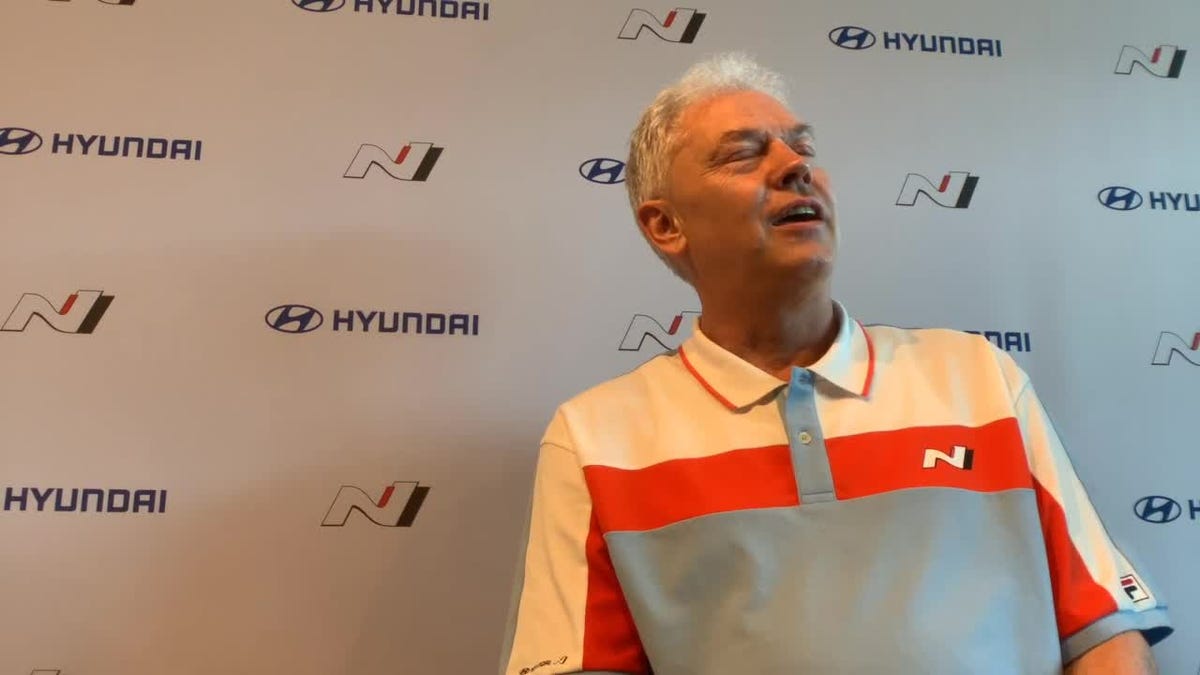Justin Marks was a Midwestern kid when he discovered his calling. His grandfather took him to local dirt tracks, and he was in awe of everything: the smells, the sounds, the action, the drivers. To him, they were almost like cowboys or daredevils—people defined by taking risks.
This story originally appeared in Volume 13 of Road & Track.
SIGN UP FOR THE TRACK CLUB BY R&T FOR MORE EXCLUSIVE STORIES
Decades later, Marks, now 41, isn’t just a driver himself. He’s among the most important new team owners in NASCAR, and he believes he knows how to propel the sport into the future.
“NASCAR is probably in the most important inflection point in its history right now,” Marks says. “You could point to the decline in automobile interest among young people, or the increase in Uber and DoorDash, and say that’s a bad omen. I think the opposite. As the automobile becomes less intrinsically connected to us, something like 40 cars going around a high-banked racetrack at 200 miles an hour will be unique and compelling.”
Marks, whose father grew businesses in Silicon Valley, signed up for Skip Barber Racing School as a junior in high school in California after a guidance counselor told him to think about what he wanted to do for a living. He fast-tracked his career from there, driving sports cars professionally in the early Aughts before moving to NASCAR, where he won a race in the second-tier Xfinity Series in 2016.
But Marks arguably made the biggest waves as his driving career wound down and he formed his own team, Trackhouse Racing, in the top-level NASCAR Cup Series. Trackhouse debuted in 2021 with pop star Pitbull as a co-owner [fig. 1]. Its drivers, Ross Chastain and Daniel Suárez, found success right away.
“As I got into my thirties, I was no longer on a trajectory that was going somewhere from a career standpoint,” Marks says. “I was just sort of funding rides with sponsorship.” That’s when he started thinking more about what the second season of his life in the sport would look like.
“I was waiting for that lightbulb moment, like, okay, this can be something I can devote myself wholly to and really do something special in the industry I love,” he says. “Then I heard NASCAR was going to this new car, the Next Gen car.”
The Next Gen car debuted in the Cup Series this year, marking a shift from NASCAR’s oval-centric roots. It’s more like a sports car than previous generations, with a five-speed sequential transmission, an independent rear suspension, and 18-inch wheels, each fastened by a single lug nut. Cars share many spec parts. “The parts are all supplied by independent vendors or manufacturers, and the car is assembled and taken to the racetrack,” Marks says. “That’s what we did in sports-car racing for most of my career, so I told myself, ‘I know that car, and I know what it takes to be successful with that car.’ That’s when I really started thinking about diving into this Trackhouse project.”
Marks formed Trackhouse as an entertainment group, not a traditional race team. While many NASCAR teams bear their owner’s name—Hendrick Motorsports, Richard Childress Racing, Penske Racing, Petty GMS, Joe Gibbs Racing—Trackhouse isn’t about a personal legacy.
“I immediately realized this is an opportunity to build not ‘Justin Marks Racing,’ but something more,” Marks explains. “I think it’s different if my name is Rick Hendrick or Roger Penske. But there’s no reason to put my name on it, because what I can be effective at creating is so much bigger than any one individual.”
The Trackhouse brand is recognizable. Marks often shows up to the races in a white cap that reads “TRKHSE” in bold black letters. The team logo, rendered by three columns inside a circle with a diagonal strike through them, is an abstract “TH” on a steering wheel.
Trackhouse doesn’t revolve around Marks or even Pitbull—the owners are just associated with something cool. The branding is compelling enough to make people want to know more but ambiguous enough to grow beyond the confines of the racing world.
“I think you can’t develop a brand using comps from the racing industry,” Marks said. “If you’re going to do something different—something that represents the future—you have to take cues from the direction of the American cultural economy. You have to be consistent with where the country is going on a much more macro scale than the NASCAR garage.”
You don’t see clichéd checkered flags in Trackhouse imagery. “We’re building brand architecture that’s scalable,” Marks says. “The next big project for Trackhouse is apparel, and we don’t want to do what other teams are doing. They’re selling the same T-shirts today that they did in 1995. We want to do things really, really differently.”
Marks invested in NASCAR because it’s “the biggest motorsport in North America.” There’s buzz from new teams, including his own and 23XI Racing, co-owned by Michael Jordan. But NASCAR has to get a lot right in the near future.
“It’s made massive commitments to introducing an entirely new economic structure in the sport with a new car,” Marks says. “But NASCAR has to fully grasp the fragility and gravity of the moment it’s in right now to set up the sport for a massive rebound in the next decade.”
Marks believes that rebound hinges not only on investments, but also on understanding the audience NASCAR is trying to attract—whether it be teenagers in California, retirees in Iowa, or food-delivery workers in Manhattan. If NASCAR succeeds, Marks thinks it’ll continue to be one of the top professional sports in America.
“We’ve got cool new teams,” Marks says. “We’ve got an awesome car. We’ve got the most diverse schedule the series has ever had. We’ve got a crop of young drivers who are incredibly talented and will carry the sport for a long time. We’ve got a lot of really good things happening. But NASCAR has to make sure it understands what it’s got in its hand—and work tirelessly to set us up in the best possible position.”
Alanis King is a writer, editor, video presenter, and podcaster who’s usually talking about cars and motorsports. Her book about Formula One, “Racing with Rich Energy,” is out now.













